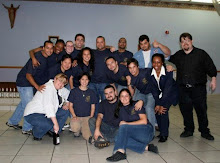Answer the following questions:
1. Read John 17:3. It seems that for John, faith is similar to what Paul thinks about it. But what does John place greater stress on concerning faith? To believe in Christ is to ______ Him.
2. Read Jn 16:30 and and 6:69. Is the object of faith more explicit in John than elsewhere in the New Testament? Who is the object of faith?
3. Read Jn 5:19-27, 12:44, 49, 14:1, 6-11, 16:27-30; and 1 Jn 2:23. Who, according to John, shares a unique unity with the Father? Say I have faith in this one; who then automatically have I faith in also?
4. Read Jn 14:15-23, 15:15, 26, 16:13. Can the knowledge of God be assimilated independently, or by human power, according to John? What is the only way this can be?
5. Read Jn 6:44-46, 57. What is the only way by which we share in Christ’s own filial knowledge of God?
6. Read Jn 3:16-17, 36, 5:24; 1 Jn 3:1, 15, 5:12-13. What, according to John, does the believer already possess? What is this? What does it consist of (Jn 17:3, 24, 26; 1 Jn 3:1-2)?
7. Read Jn 2:22, 5:47, 8:45. There is something unique about John’s take on faith. What is it? What then is faith according to John?
8. Read Jn 17:20. What also must I place my trust in, according to John, of which faith consists?
9. Read 1 Jn 5:7-12; Jn 1:29-35; 14:12-14. What does faith involve, according to John? Is the role of this figure emphasized in John’s writings? Does creation play a part in this according to John? What Catholic principle then is especially stressed in John’s writings.
10. Read Jn 3:36 (cf. 3:18-20). What does faith bring us, according to John? What does unfaith bring us, according to John?
11. Read Jn 1:10-11. What is the greatest tragedy according to John?
12. Read 1 Jn 3:23. What for John is the work of faith? Is this like Paul?
13. Let’s summarize faith in John. Gather all these themes.
